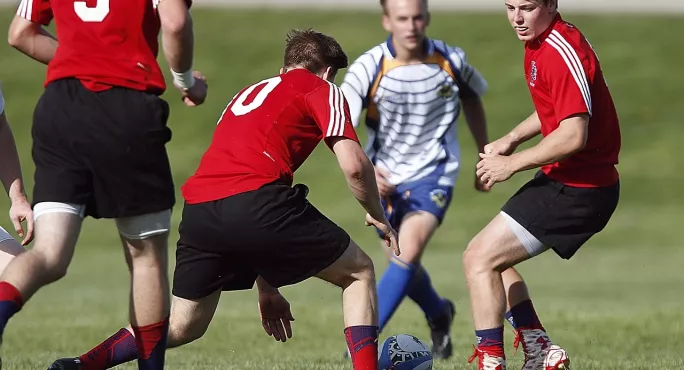When pupils are excluded from school we already know their life chances are significantly reduced. Sixty per cent of the prison population were permanently excluded, less than 1 per cent go on to get five “good” GCSEs and one in two permanently excluded pupils have a recognised mental health need.
Earlier this week I spent some time playing tennis with a KS3 pupil - he was pretty good, having never picked up a racquet before joining us at City of Birmingham School (COBS) a few months ago. Later that day I was privileged to be in the room when he was told we have secured him a place in a mainstream school. He was so happy he cried and so did staff members.
The interesting thing about that pupil, and every pupil who comes through our doors at COBS, is the transformative nature of physical activity in his time with us.
We have a high-quality academic curriculum. Our KS4 pupils study a range of GCSEs alongside some vocational qualifications and we have high expectations of all of our pupils and of their outcomes. We are incredibly ambitious for all of our pupils but we want them to leave our school with more than just excellent outcomes. We achieve this by providing all of our pupils with new and enriching opportunities that other children get at home. Ultimately, we take a whole-life approach to our pupils, taking into consideration their social environment and physical and mental health.
We would never try and hide the fact that our pupils can and do display some extremely challenging behaviours, but the benefits of physical activity to our young people are unequivocally positive. The vital role of improving physical health goes without saying, however, the impact physical activity can and does have on mental health is also stark.
Pupils who have multiple adverse childhood experiences (ACES), live in the glare of social media and societal pressures. Taking part in a new sport or exercise offers them a sense of release and achievement. Pupils become more tolerant, develop teamwork skills, grow in confidence and step out of their comfort zones on a regular basis. They experience real and individual success. The importance of this for our pupils cannot be understated - we need pupils to be “world ready” - and all of these skills will be absolutely key.
In October we launched a partnership with Dallaglio Rugby Works in collaboration with not-for-profit health body ukactive. The charity works, through rugby coaching, with pupils outside of mainstream school. The aim of the programme is long-term skills development in order to get young people into sustained education, employment or training.
A number of our pupils are already benefiting from this programme and we are seeing an impact. The coaches are ex-players, such as the Tongan International Rugby Player Aleki Lutui, and command a different level of respect from pupils - they are important role models for our pupils. Attendance is up amongst these pupils and we expect academic progress will be increased too. Anecdotally we know pupils’ concentration is better, their engagement is improved and their focus on their own future is channelled towards something exciting: hope.
Pupils in AP and PRUs deserve the absolute best and it is incumbent upon us to provide that for them. This isn’t some kind of reward system for perceived poor behaviour, it’s an approach that builds character and resilience in vulnerable young people and one that we see working already. Pupils in a PRU have already had the ultimate sanction that education can dole out to them in being excluded; we see our role as showing them there is a different way.
With an open mind and flexible approach, alternative provision can be just that, a truly alternative model where disenfranchised young people find their place in the system and the wider world.
Steve Howell is the headteacher of the City of Birmingham School (COBS)



